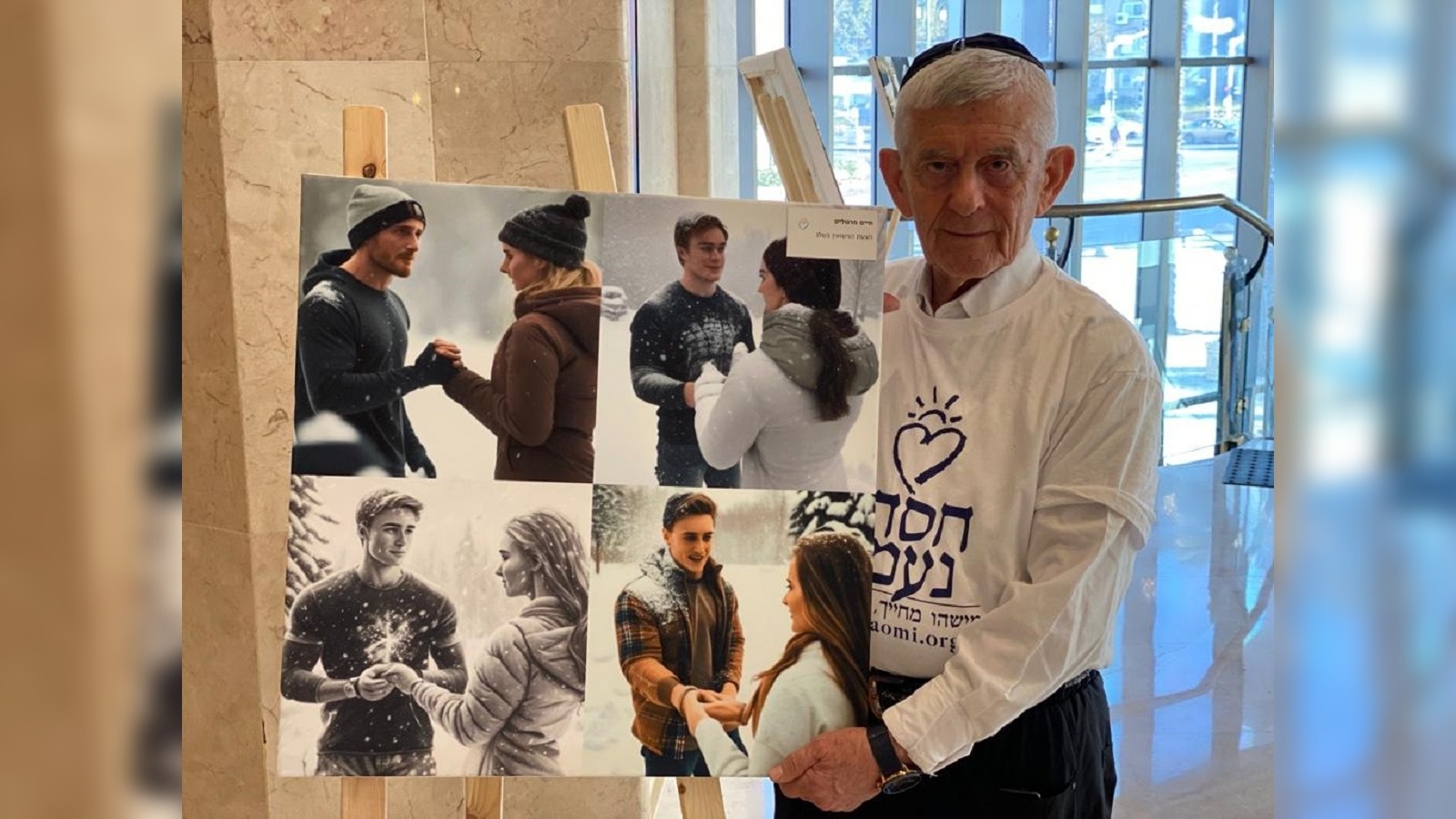Holocaust Remembrance Day: Remembering the Past and Looking to the Future
Israel marks the annual Holocaust Remembrance Day by reflecting on the memories of the Holocaust and their relevance to the present
From Monday evening to Tuesday night, Israel marks its annual Holocaust Remembrance Day.
It is a solemn day. At sundown on Monday, restaurants, cafés, theaters, and other establishments shut down early to commemorate the 6 million Jews that perished in the Holocaust, or Shoah, 80 years ago.
A two-minute siren punctured the air on Tuesday morning at 10 am as the country came to a standstill. Traffic stopped and people stood silently as they remembered the victims that were killed by Nazi Germany and its allies.
As the years go by and survivors dwindle, the challenge of remembering the events becomes greater. The distance between the very old generation that survived and the young generation that has no recollection calls for greater attention to how this horrific event is kept in the minds of people.
Israel was established on the heels of the disaster, as an asylum for Jews.
“On the one hand, remembering the Shoah in Israel is easier because the memory is part of the national DNA,” said Dr. Tobias Ebbrecht-Hartmann, assistant professor for visual culture, film, and German studies at the DAAD Center for German Studies and in the Department of Communication & Journalism at the Hebrew University of Jerusalem. “On the other hand, it is more difficult, because it is very easily and rapidly, references to the past pop up in nearly every political debate and this might pose a challenge be decontextualizing the memory of the Holocaust from the particular human experience.”
People need to remember this all the time. This can’t happen ever again, to anyone. I remind people every day of the Shoah.
For Haim Margolis, an 88-year-old Holocaust survivor from central Israel, the memory is still fresh. But he wants others to keep it in the front of their minds as well.
“People need to remember this all the time,” Margolis told The Media Line. “This can’t happen ever again, to anyone. I remind people every day of the Shoah. People only remember us before this memorial day but we won’t be here for much longer.”
Margolis spent much of his life carrying for his wife, an orphan from Bucharest, Romania who lost her entire family in the Holocaust.
“Her scars became my scars, her anxiety, became mine,” he said.
Even though he himself was sent to forced labor camps at the age of 7, it is her trauma that he carries with him every day, even years after her passing. At the elderly day care center in which he volunteers, he tells his story frequently.
According to the Israeli Holocaust Survivor’s Rights Authority, there are 147,199 living survivors in the country. The average age of survivors is 85.8, the youngest is 76, and 462 survivors have passed the age of 100. As the number of survivors decreases annually, the link between the generations is getting weaker.
“The biggest challenge is to convince the public that it is still a relevant part of our history without distorting it or using it for current purposes,” Ebbrecht-Hartmann added.
“It is like a pendulum swing,” said Dr. Netanel Fisher, head of the Public Policy Department at the Academic College of Law and Science and a former guide for Israeli youth delegations to Poland. “On the one hand, survivors are dwindling and there is a greater distance from the event, and on the other hand there is an increased interest in the Holocaust and countless books and research published annually about it.”
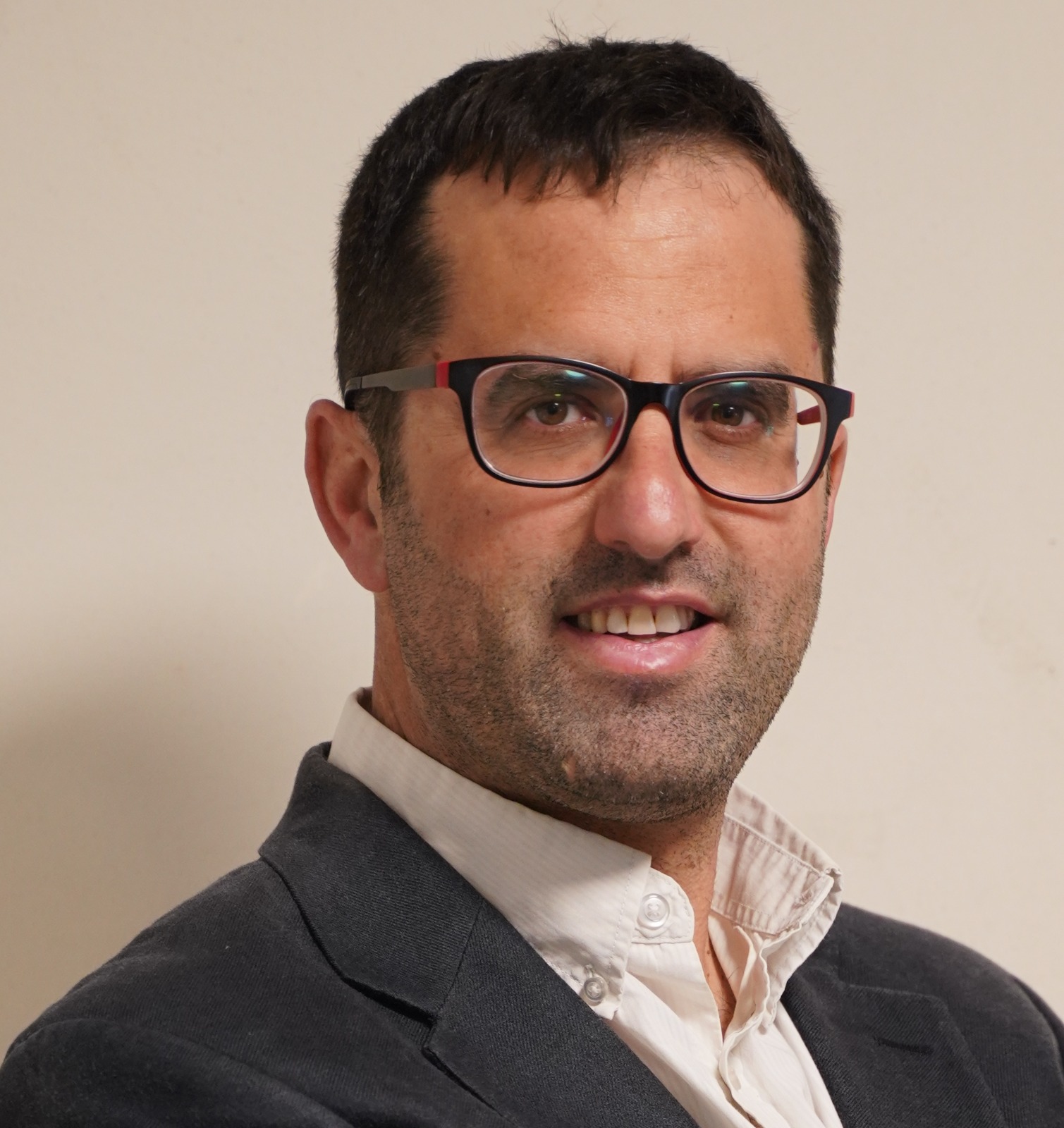
Dr. Netanel Fisher. (Oren Senans)
Israel is currently in the midst of a deep political crisis that has further highlighted the rifts in society.
The core of the memory, in the midst of all the destruction, should be about the greatness of mankind and not just about the genius of evil and the murderous mechanisms. The focal point of the Holocaust is not the evil of Nazism but the greatness of people who found themselves in this madness and remained humane.
“In the Holocaust, we were all together—Sephardi and Ashkenazi Jews, from Europe, North Africa, the Mediterranean coast,” said Michal Govrin, an Israeli author and poet. “Some reciting the Shema prayer, some ‘The Internationale.’ It was only the Nazi defeat that saved the Jewish presence in the land of Israel.”
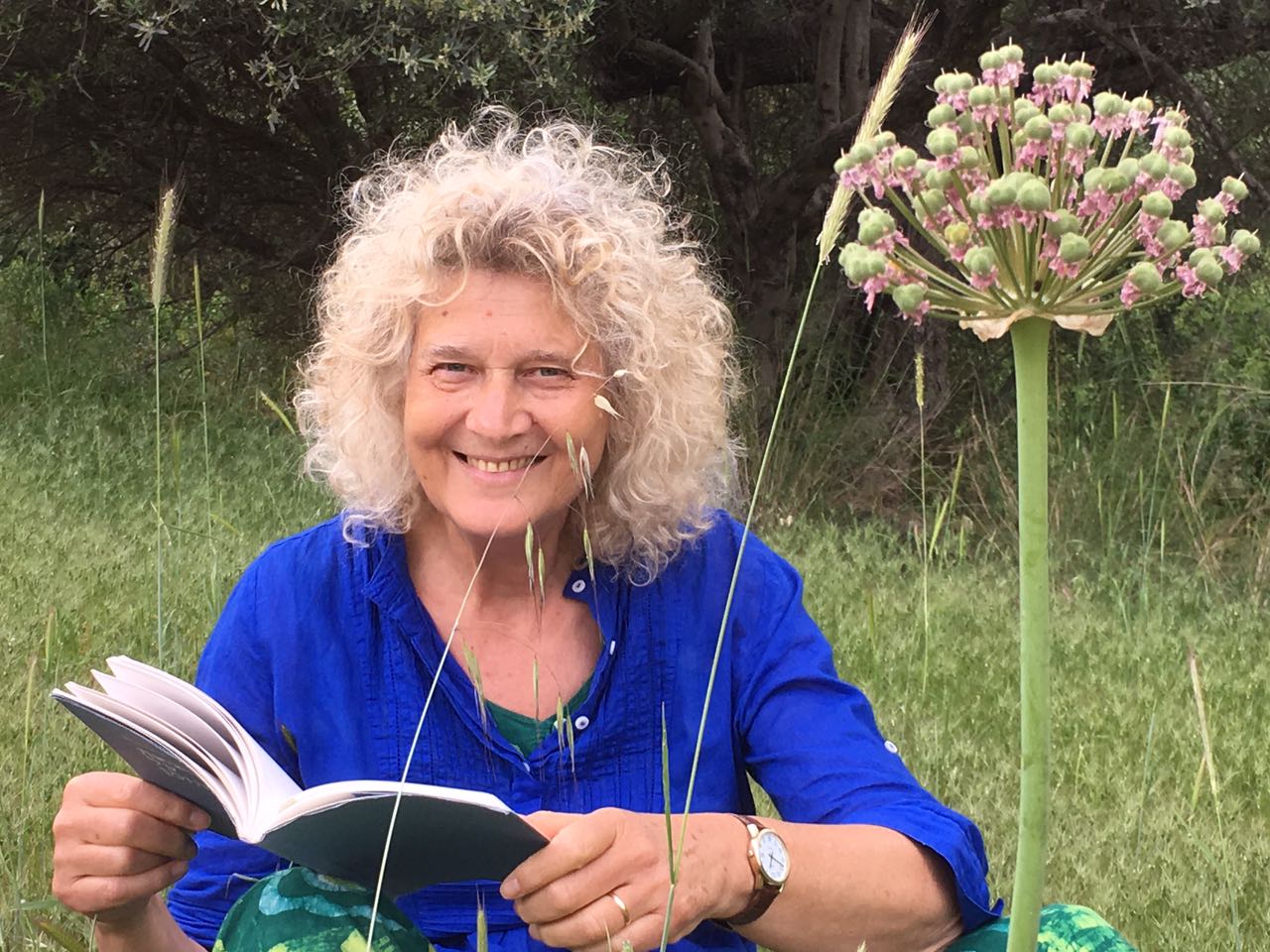
Author and poet Michal Govrin. (Yehudit Dorion)
Govrin was speaking at a demonstration against the government reforms that are causing a heated debate in the country.
“The memory is kept alive responding to the present,” she told The Media Line in an interview. “The memory is influenced every year by the changing events. Two years ago, it was in the midst of the pandemic; last year, it was the Ukraine-Russia war; and this year, we will be surrounded by the social earthquake we are currently experiencing.”
“There is no doubt that the memory changes throughout the years and so do the lessons of the Holocaust,” said Fisher.
Each event leads to a different perspective on the historic event that was the Holocaust.
Govrin leads a unique commemoration initiative at the Shalom Hartman Institute in Jerusalem called “Hitkansut,” or gathering. In the meeting, participants read the Holocaust Haggadah, structured like the Passover text that tells the story of the Exodus from Egypt. The new text is based on texts, testimonies, discussions, prayer, and moments of silence that bring people together in remembering the Holocaust. The gatherings will be held in many places around the country this week.
Govrin is not concerned with the possible loss of memory of the Holocaust.
“We remember Jewish slavery in Egypt which occurred over 3,000 years ago,” she said. “I have no doubt that the Holocaust will be engraved in our memory forever.”
Govrin’s mother was a Holocaust survivor who did not share her story. Twenty years after her death, Michal came to learn of her mother’s bravery and found documents that attested to her saving over 30,000 Jews.
“My mother chose life,” Govrin said, which helps explain the focus of her Holocaust Haggadah.
“The core of the memory, in the midst of all the destruction, should be about the greatness of mankind and not just about the genius of evil and the murderous mechanisms,” she said. “The focal point of the Holocaust is not the evil of Nazism, but the greatness of people who found themselves in this madness and remained humane.”
This is a message Govrin believes is relatable to any generation.
But for other people, the tales of Jewish heroism during the dark period of Nazi rule over Europe, distance the horrors, perhaps shrinking them.
“We won, but we also suffered great losses,” said Fisher. “The Holocaust was committed by mankind and because of this, as humans, we need to be committed to understanding how something like this happens. What makes people kill a whole population?”
For many young Israelis, a school trip to Poland during high school has almost become a rite of passage. It is estimated that approximately 30,000 students visited Poland annually until the trips were canceled last year by the Israeli government due to a conflict with the Polish government. Expected to resume in the near future, it has become “a major educational tool” according to Fisher.
Thousands of Israeli soldiers are also sent annually to Poland to see the concentration camps.
To assist with the challenge, technology has been increasingly employed.
“Digitization offers much potential to engage with historical sources and stories of the Holocaust,” said Ebbrecht-Hartmann, who points out the challenges presented by inserting high-tech into history.
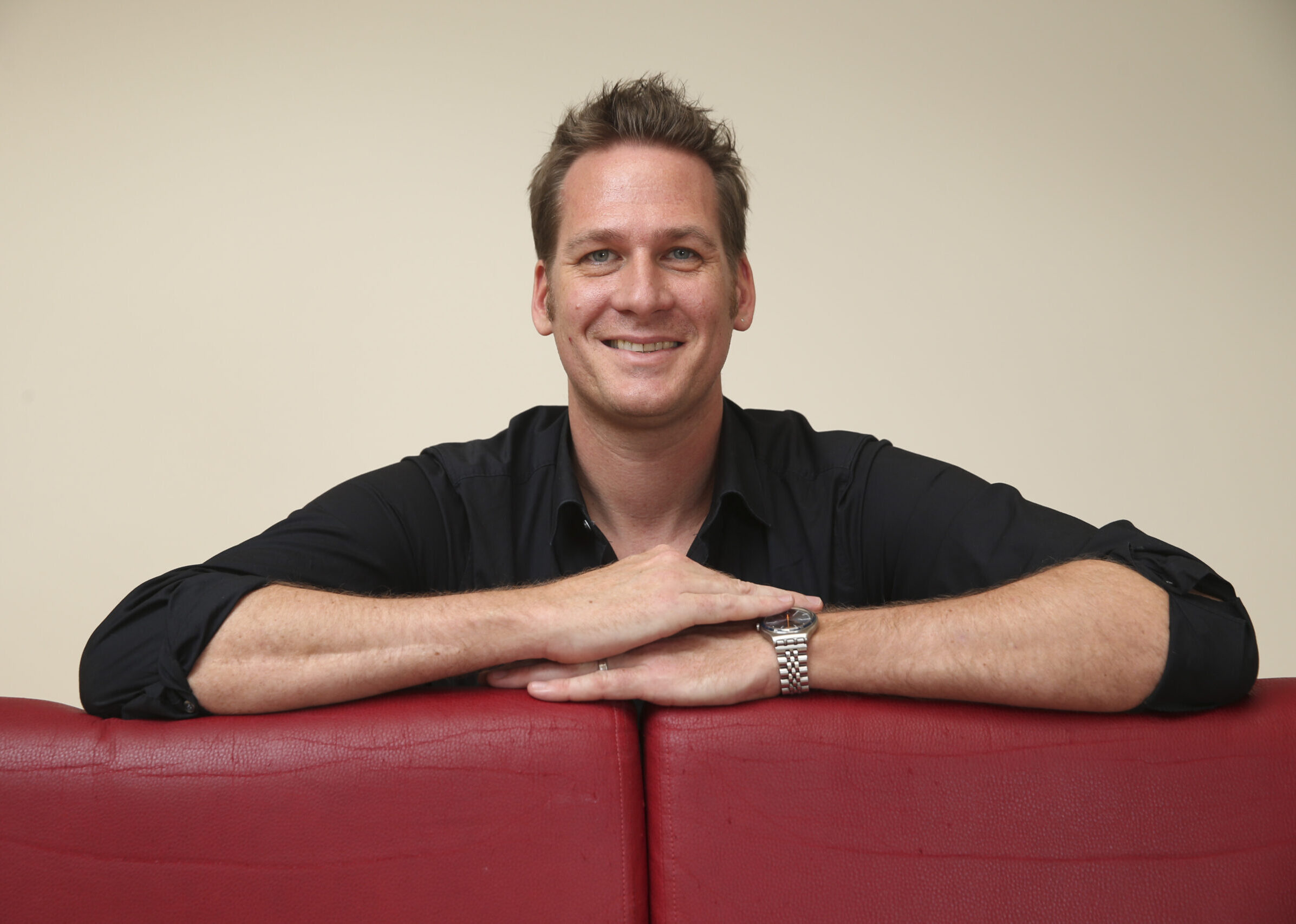
Dr. Tobias Ebbrecht-Hartmann. (Courtesy Hebrew University of Jerusalem)
“One always has to critically reflect on how to use technology and how to anticipate how potential users will react,” he added. “It is important to keep the accuracy of the sources but also use the potential of digital storytelling.”
Margolis has had pictures portraying himself during the Holocaust made with the aid of artificial intelligence (AI) based on his recollections. One shows him working in a labor camp constructing railroads; the other shows the moment when he proposed to his wife when he was 16 and she was 13. He found her at an orphanage, and they were married for 67 years.

Holocaust survivor Haim Margolis holds up an AI-created image of himself as a 7-year-old child at a forced labor camp. (Courtesy Chasdei Naomi)
The pictures were used as part of an AI-based Holocaust exhibition created by Chasdei Naomi, a charity that cares for the needs of thousands of survivors in Israel. The exhibition used the memories of about 20 survivors to tell the story through AI images.
Other organizations have used virtual reality goggles to insert people into a scene that occurred back in Nazi Germany. An Instagram account created to tell the story of a Jewish teenager in Hungary drew over 1 million followers a few years ago but also stirred up controversy about the use of social media to honor the memory of the Holocaust.
This year, Chasdei Naomi teamed up with military intelligence cadets and used ChatGPT to create a WhatsApp-style chat with Holocaust survivor Tova Feder. Feder, managed to survive the war by posing as a daughter of a deceased Nazi officer. In the app, one can ask her questions and receive answers based on her testimony and AI.
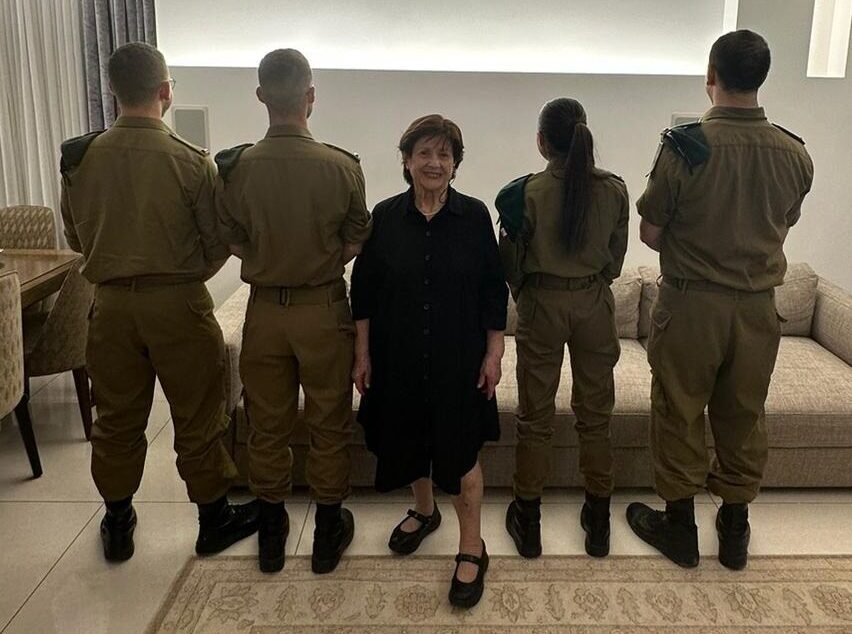
Holocaust survivor Tova Feder poses with the soldiers who developed the WhatsApp-style chat. (IDF Spokesperson’s Unit)
“As time passes, the understanding of the loss and the pain gets blurred,” Fisher said. “This is only natural.”
This is the challenge that will continue to grow as the years go by.

